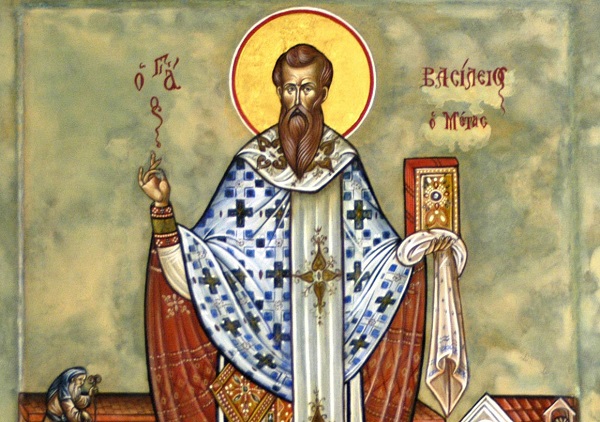1st Discourse on Fasting [3]
16 December 2018[Previous post: http://bit.ly/2zXXEdL]
Do you think I derive its antiquity from the Law? Fasting is older than the Law. Just be patient and you’ll see the truth of this.
Fasting was the first commandment of God in paradise. When Adam and Eve broke it, it marked the fall of the human race into sin.

Don’t think that the Day of Atonement, which had been ordained for Israel for the tenth day in the seventh month (Lev. 16, 29), is the beginning of fasting. If we take a walk through history, we’ll be able to investigate its antiquity. Because it’s not something that’s recently been thought up. It’s a legacy from the Fathers. Everything that’s ancient is worthy of respect. Respect the antiquity of fasting. It’s as old as humanity itself, because it was legislated for in paradise. It’s the first commandment that Adam received: ‘You shall not eat of the tree of the knowledge of good and evil’ (Gen. 2, 17). ‘You shall not eat’ is a legal prohibition regulating fasting and self-control. Had Eve abstained from eating the fruit of the tree, we’d have had no need of this fasting. ‘For the healthy have no need of a doctor, but the sick do’ (Matth. 9, 12).
Repentance without fasting is hollow
We’ve suffered much evil because of sin; let’s be cured through repentance. But repentance without fasting is hollow. ‘Cursed is the ground because of you; it will produce thorns and thistles for you’ (Gen. 3, 17-18). You were ordered to be tested, not, of course, to live a life of luxury. Through fasting, confess to God.
And the way of life in paradise is also an image of paradise, not merely because Adam and Eve, sitting at the same table as the angels, managed, through frugality, to resemble them, but also because all the things which the human mind later invented, wasn’t available to those who were nourished in paradise. There was no wine-drinking, no killing of animals, none of the things that confuse our mind.






